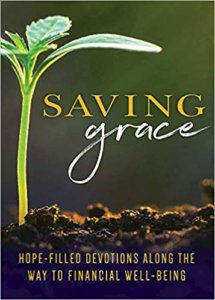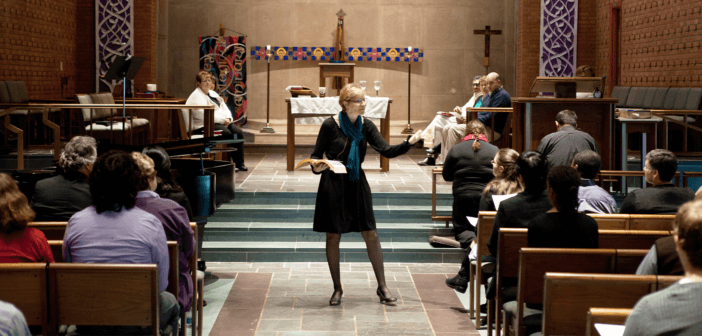Alex Joyner says tending to our attitudes about money is a way of tending our souls. He shares tips for preaching in ways that can help people see their finances through the lens of faith.
Our financial lives are part of our spiritual lives. One of the reasons Jesus talked so much about money is because he realized that our overall well-being is reflected in the ways we deal with (or don’t deal with) our finances. Helping us tend to our attitudes toward money is part of the way he helps us tend to our souls.
Thinking about preaching as a tool for helping congregations shift their attitudes and culture regarding finances is one part of financial leadership. Here are some ways you can make your preaching and teaching on money more effective:
1. Know your own story.
All of us have histories with money. What’s yours? Spend some time reflecting on the messages you grew up with regarding money. Did your family of origin have an ethic of abundance or scarcity? How did they handle times of financial stress? What financial stresses are you experiencing now? What steps are you taking to address them? Answering these questions can give you confidence and help you speak as a fellow-traveler with those you are addressing. Nothing is more powerful than the testimony of people who can share their authentic experiences of struggle and faith.
2. Preach and teach about money often, highlighting money-related themes in Scripture.
It’s not hard to find references to wealth, poverty, stewardship, money, and finances in the Bible. You will also see passages concerning generosity, trust, and abundant life. Seek out opportunities to lift up these themes and connect them to faithful living. Connect your offering time in worship with the sermon, highlighting the act of offering in response to the particular word of the biblical text that you are using.
3. Use multiple ways of talking about giving.
Some people will respond to messages that talk about giving as a way to step out in faith on a grand adventure. Others will need to hear about how their giving can extend the legacy of a church for future generations. Still others will want to know how their giving helps connect the church with the community and those in need. Some will jump on the bandwagon to be part of a churchwide campaign that unites the body of Christ. There are even some who will be motivated by the fact that there is a budget shortfall and they can help make a difference in closing the gap.
Invite some of your givers to offer testimonies in worship about their giving. Notice what they say about why they give. Meet with these volunteers before the service to help them craft their testimonies based on what you hear in their stories, guiding them to speak confidently in a way that will resonate with the congregation. They will give you clues about the many different motivations people bring to their giving. Helping people make the connection between those core motivations, their money, and their faith will enable you to be a more effective communicator in both your teaching and preaching.
4. End with an ask.
We’ve all been subjected to “may we” sermons. We’ve probably given more than a few ourselves. A “may we” sermon draws to a close with a gentle nudge to more reflection on the sermon’s message. As in: “May we consider how God might use our gifts for the upbuilding of the kingdom.” May we? Of course, we can! Let’s do it. And let’s give our listeners concrete ways to do it. Have you been talking about Jesus’s concern for children and there’s an elementary school down the street? What is something your congregation could do this week to make a difference for the children who attend there? How can the children in your church use their gifts in mission? Let’s fund their dreams to serve God. Be bold and specific in your ask, and watch God work with it.
5. Connect your giving to your vision.
People don’t give to budgets; they give to God. If your church’s vision isn’t compelling enough to inspire people to give, maybe it’s not big enough. Keeping the church’s doors open is not a big vision. It’s all that’s left when all the other vision has left the building.
When preaching about money get down to shoulds and oughts, it’s a good sign that it’s time to reorient around a different vision that is more faithful to the mission of the church for which Christ died. Sure, we should give, but what is the place in our soul that calls us to that practice? Sure, we ought to, but why? Make sure that you can answer those questions yourself before you ask anyone else to do so.
 This material is excerpted from Saving Grace: A Guide to Financial Well-being Abingdon Press, 2020. Used by permission. Saving Grace videos, workbooks, and devotional materials explore money management from a Wesleyan perspective to help clergy and laity reach personal financial goals and address life concerns. They are available at Abingdon Press, Cokesbury, and Amazon.
This material is excerpted from Saving Grace: A Guide to Financial Well-being Abingdon Press, 2020. Used by permission. Saving Grace videos, workbooks, and devotional materials explore money management from a Wesleyan perspective to help clergy and laity reach personal financial goals and address life concerns. They are available at Abingdon Press, Cokesbury, and Amazon.
Related Resources
- 7 Ways to Make it Easier to Talk about Money in Church by Ann A. Michel
- 6 Tips for Effective Preaching on Stewardship by Margaret J. Marcuson
- Preaching and Money by Ann A. Michel






